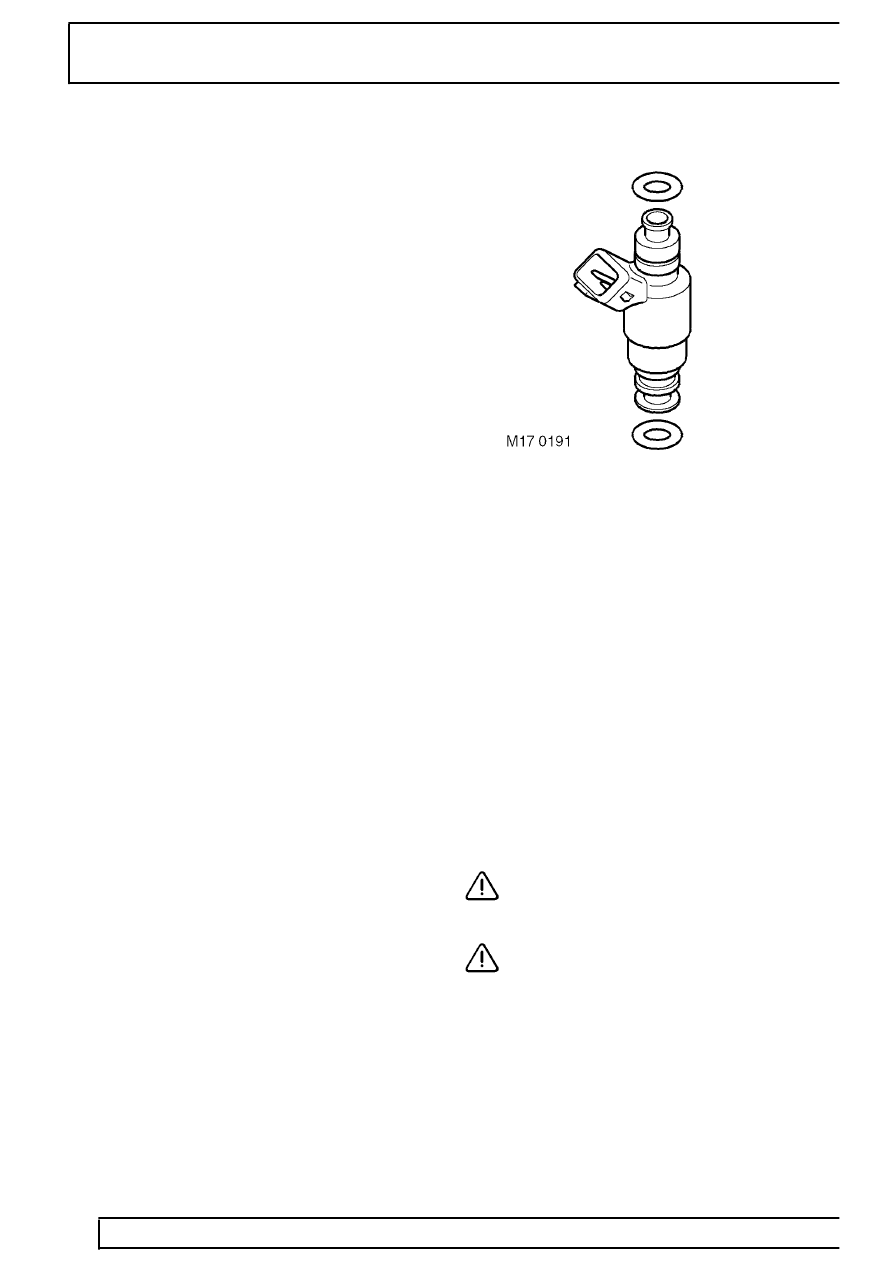Range Rover P38

19
FUEL SYSTEM
NEW RANGE ROVER
50
DESCRIPTION AND OPERATION
Resistance measurements of the primary and
secondary sides of the ignition coils can be performed
using a suitable multimeter. Default values are:
•
Nominal primary coil resistance (up to 99MY) =
0.8 ohms
•
Nominal primary coil resistance (from 99MY) =
0.5 ohms
±
0.05 ohms at 20
°
C (68
°
F)
•
Nominal secondary coil resistance = 13.3
k-ohms
±
1.3 k-ohms at 20
°
C (68
°
F)
If an ignition coil should fail, the following symptoms
may be observed:
•
Engine will not start - loss of spark
•
Engine misfire on specific cylinders
An ignition coil failure is likely to occur for the following
reasons:
•
Connector or harness fault
•
Coil open circuit
•
Short circuit to vehicle battery supply or ground
•
Faulty component
Fuel injectors - from 99MY
The fuel injectors are located beneath the air inlet
manifold. They utilise an electrical solenoid which lifts
an injector needle off its seat to allow fuel injection to
take place. The fuel injectors provide excellent fuel
atomisation in the lower portion of the inlet manifold,
the air:fuel mixture is then drawn into the cylinders to
provide optimum combustion characteristics and
excellent driveability.
A fuel pressure test point is provided by means of a
Schrader valve positioned between the rear of the
engine and the bulkhead, above the coil packs.
There are eight fuel injectors, one per cylinder which
the ECM operates sequentially. All the injectors are
fed from a common fuel rail as part of the returnless
fuel system. Fuel pressure is maintained at a constant
3.5 bar (52 lbf.in
2
) by a regulator that is integral with
the fuel pump.
CAUTION: The injectors are extremely
sensitive, they must not be dropped or
contaminated.
CAUTION: When assembling the injector
to the fuel rail, only use clean engine oil to
aid assembly. DO NOT use petroleum jelly
or other forms of grease, as this will contaminate
the injector.
The injectors can be checked using a multimeter to
test the resistance values:
•
Injector resistance at 20
°
C = 14.5 ohms
±
0.7
ohms
